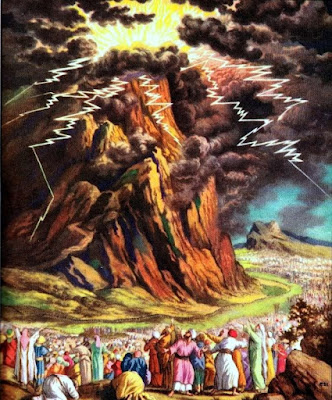"Open the door, mate! Please, just open the door."
Knocks continued as I took my shower at the hostel in Ho Chi Minh City, formerly known as Saigon. It's not every day that your shower gets interrupted by a drunken Britt from Birmingham needing to, well, more kindly than he put it "relieve himself".
I knew who the guy was. We had talked recently and I didn't feel in any danger. In fact, danger hadn't even crossed my mind. I have no problem letting a bro into the bathroom when nature calls. I mean, a man's gotta' do what a man's gotta' do when a man's gotta' do it.
"Well, I need a moment." My body was covered in soap and I wasn't about to trudge soap across the floor.
"Please! Just open the door. I just have to take a [leak]. I'm drunk and I gotta' go!"
"Coming." I wrapped my towel around my waist and opened the door.
"Thank you so much mate. Ahhhh..." He probably relieved himself for a good two minutes, almost falling backwards twice.
Again, I really didn't mind letting him in. He had a delightful Cockney Birmingham accent, after all. In fact, so he claims, that driving cap I have was invented in Birmingham and, in his words, "You got to be a Birmie to wear one of those."
How did it all start?
I had walked into the hostel earlier that night to meet Shelly for the first time. She seemed exhausted, yet calm in a charming sort of way. I asked and she told me some of her journey. She had a semi-crazy trip. I'll spare the details, except to say that I asked, "What's a brilliant girl like you doing partying? You should be up at 5:00 A.M. interviewing shop owners, building a contact book, and making a journal of your discoveries."
"You know, you're right, actually," she said.
I gave her the boilerplate advice, which somehow never seems so obvious: Study what you hate, do what you love. It's not always true, but what a resume builder, eh? "I travel the world because I love people, I speak three languages, but I studied accounting and pre-MBA in college to keep myself well-rounded." Who wouldn't hire someone like that?
"I must introduce you to Heather," I said at last. "Heather is from a country right next to yours and she's quite similar. She's traveling with her friend, Brianna, which I can never pronounce to her liking."
Shelly was from central Europe and had just worked for an airline. She told me a story about a tough customer she once had, how airline employees must always wear a smile, even while laying down the law, even while being threatened.
...Airline employees must always wear a smile.
And, that was Shelly. Even after the rough story of travels she had been through, here she was, all in one piece, calm as a cucumber. In many ways, I envy her.
In walked Heather and Brianna. "There they are," I exclaimed. The three ladies got acquainted on the porch that evening in Saigon while I took to the shower. I had an early flight to catch and wanted to get to sleep early.
So, here I was in the shower—kind of—trying to keep a drunk "Birmie" from falling down while relieving himself. "Oh, thanks so much, mate! I'm so drunk."
"It's alright. I understand." We just have to wear that smile no matter what...
I finished my shower and made my way out to the porch to find our Birmie friend chatting it up with the three ladies on the porch. After a minute or two, his other Birmie friend showed up.
"Oh, please," one of the fellas said. "Just a little more massage."
"But, I already gave you three. You're quite relaxed as it is."
"I still want the full massage."
"But, you can't do everything all at one time."
That's very true.
Time to distract. "Jesse, what was it you said you were working on with your website?"
"It was a list of words. Many non-native speakers have trouble with some English sounds..."
"Get off of my bed! I want to sleep!"
"Don't bother Breeann," I say.
"No, no, no! It's Brianna," she corrected.
Her friend piped in. "Yes, there are some sounds that native English speakers have trouble pronouncing in other languages."
Touche.
This was going to be an interesting evening. I didn't dare doze off to sleep. The drunk boys probably aren't all that bad, but they wouldn't let the ladies be. Worse things probably happen in many other parts of the world, especially in so-called "civilized nations".
One guy playfully tosses Brianna on the bed. She objects with dignity. Heather tries to talk some sense into the drunk, but more as a distraction gimmick than any genuine hope of producing change.
As the night went on, the girls did a rather fantastic job of entertaining the drunk boys. It wasn't for any agreement or to join in their rough housing. There just wasn't anything else for them to do. So, they sat and listened to them through the night.
It began to rain. It stopped raining. The floor got wet. Then one of the boys threw Shelly's bag on the floor—right into a puddle of water.
"You can't throw people's things," I kindly explained.
"But, I want to throw things," he said.
Now, there's an indication of insecurity. The boys aren't really bad, just immature and insecure. That's quite a contrast to the girls with whom these boys quite clearly didn't stand a chance of rounding first base.
"You can't throw other people's things, though. They can break. Now, Shelly is sad."
Watching those girls deal with misfits was a lesson in life for me. I don't know where Brianna and Heather will go with their lives, but I'm sure it won't be a waste.
Shelly sat next to her wet bag, poking her fingers at her temples. Then, she smiled. She was tired. It was 4:00 A.M. Her only travel bag was wet—along with who knows what else inside. With her luck everything was probably okay. But, that's not the point.
In that moment, Shelly convinced me that she did indeed work for an airline. You have to have the patience of Job to not explode in a situation like that.
Shelly, I don't know where you will go with your life, but I'm sure it will be amazing as long as you keep going and, no matter what, keep smiling.
So, what happened to the boys? I couldn't stay around to find out. I had a plane to catch. That's another story of patience all to itself. I'll just say that the memory of Shelly kept me smiling.








